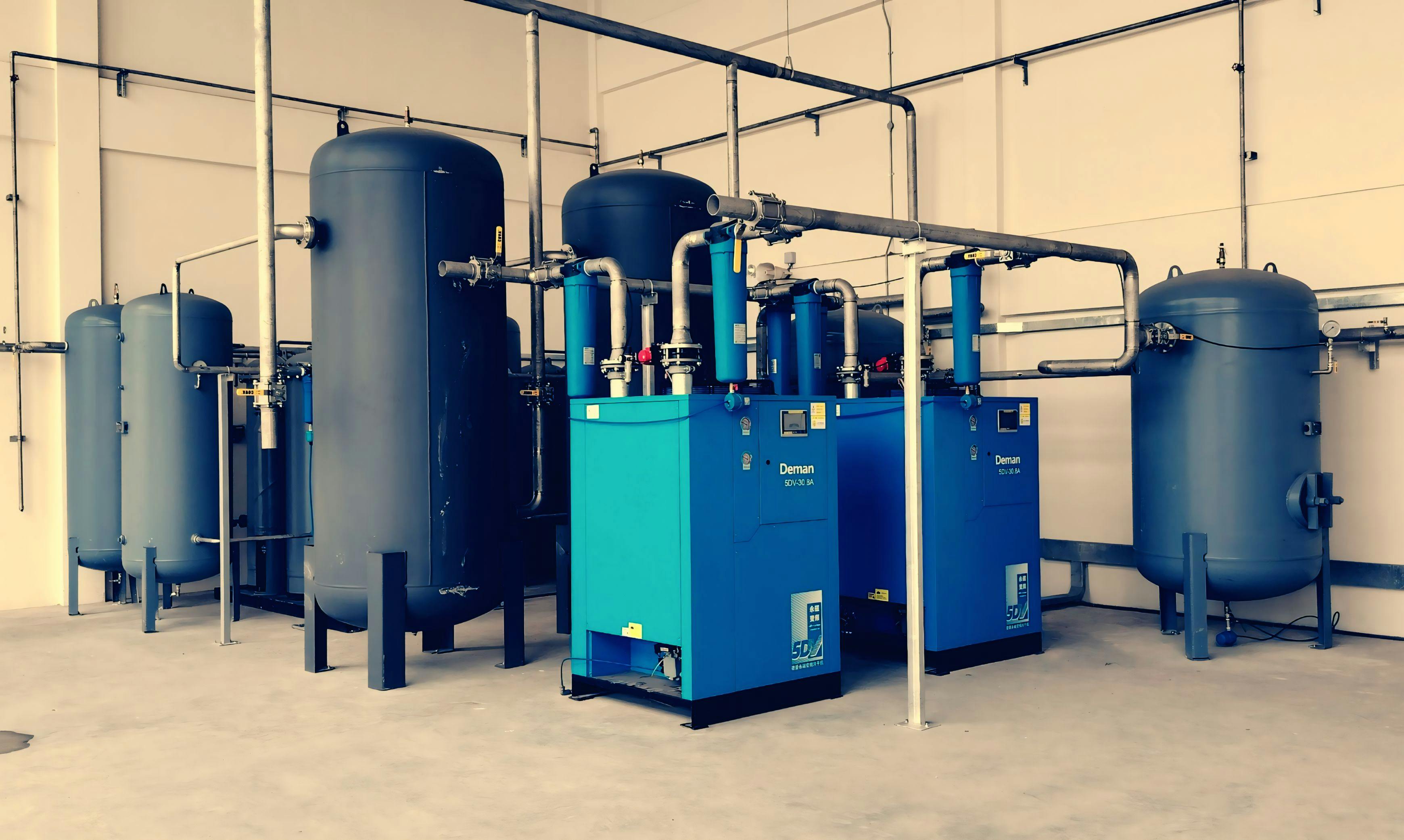How to Choose the Right Pressure Vessel Supplier: A Comprehensive Guide


How to Choose the Right Pressure Vessel Supplier: A Comprehensive Guide
1. Does the Supplier Comply with International Standards?
Compliance with international standards is non-negotiable when sourcing pressure vessels for global operations. A reputable supplier will adhere to certifications such as:
- PED (Pressure Equipment Directive): Essential for meeting safety and quality standards in the European market.
- ISO 9001: Demonstrates a commitment to quality management across all processes.
- ASME (American Society of Mechanical Engineers): A globally recognized benchmark for safety and reliability in pressure vessels.
For industries in Europe, Australia, and the UK, these certifications ensure the supplier's products meet regulatory requirements, offering peace of mind and streamlined operations.
2. Are They Experts in Material Selection?
The materials used in pressure vessel fabrication play a crucial role in determining durability, safety, and application-specific performance. Common materials include:
- Carbon Steel: Known for strength and cost-effectiveness, widely used in energy and manufacturing sectors.
- Stainless Steel: Offers superior corrosion resistance, making it ideal for pharmaceutical and food processing industries.
- Duplex Steel and Aluminum: Preferred for applications requiring lightweight yet durable solutions, such as transportation and marine industries.
Suppliers with expertise in material selection for global applications can ensure the vessel aligns with your specific industry requirements and environmental conditions.
3. Do They Offer Custom Fabrication Services?
Custom fabrication is vital for industries with unique operational demands. A supplier offering bespoke solutions demonstrates their capability to tailor pressure vessels to specific dimensions, designs, and applications. Advanced tools to look for include:
- Finite Element Analysis (FEA): Used to predict how the vessel performs under stress and operational conditions.
- SolidWorks and CAD Software: For precise design, modeling, and prototyping.
Custom solutions ensure your pressure vessel meets regulatory requirements in the UK, Australia, or Europe, while optimizing safety and efficiency for your operations.
4. Are Testing and Inspection Processes Rigorous?
Comprehensive testing and inspection processes are critical to ensuring product safety and reliability. Look for suppliers who perform:
- Non-Destructive Testing (NDT): Methods such as ultrasonic, radiographic, or dye penetrant testing to detect flaws without compromising the vessel's integrity.
- Hydrostatic Testing: Ensures the pressure vessel withstands specified pressure levels.
Suppliers with robust quality assurance protocols instill confidence that their products can meet international demands, particularly in regions with stringent compliance standards like Europe and Australia.
5. Do They Have Industry-Specific Expertise?
A supplier with experience in your industry understands the nuances and compliance requirements unique to your sector. Suppliers familiar with these challenges are better equipped to deliver solutions tailored to the industries in the UK, Australia, and European markets.
6. What Is Their Reputation and Track Record?
A supplier’s history reflects their reliability and ability to meet client expectations. Consider the following:
- Years of experience in pressure vessel manufacturing.
- Client testimonials or case studies from companies in the UK, Australia, or Europe.
- References from industries similar to yours to verify their expertise and reliability.
A proven track record in international markets ensures that the supplier can deliver high-quality products consistently.
7. Are Lead Times and Logistics Efficient?
Timely delivery is crucial to maintaining uninterrupted operations. Suppliers should provide realistic lead times and manage logistics effectively, including:
- Factoring in design complexity and customization.
- Managing international shipping and handling.
- Ensuring compliance with export documentation and certifications.
A supplier experienced in serving global markets, such as Australia, the UK, and Europe, will understand the importance of efficient logistics and provide solutions to streamline delivery.
8. Do They Provide After-Sales Support?
Pressure vessels require regular maintenance to remain compliant and safe. Suppliers offering after-sales services demonstrate long-term commitment to their clients. Look for:
- Maintenance contracts for routine inspections.
- Availability of spare parts for quick replacements.
- Technical support to address troubleshooting or operational concerns.
Reliable after-sales support enhances the operational lifespan of your pressure vessels, minimizing downtime and ensuring compliance with global standards.
9. Can They Handle International Shipping and Compliance?
For businesses in the UK, Australia, or Europe, sourcing pressure vessels from international suppliers involves navigating complex logistics and compliance challenges. Choose a supplier with:
- Experience in managing cross-border shipments.
- Knowledge of regional certifications, such as PED in Europe or specific energy standards in Australia.
- Expertise in secure packaging to ensure the product arrives intact and ready for use.
This ensures seamless delivery and adherence to local regulations, regardless of where your operations are located.
Conclusion
Choosing the right pressure vessel supplier is a critical decision that directly affects your operations, safety, and financial success. By asking these questions and considering international requirements, you can identify a supplier capable of delivering high-quality, compliant solutions tailored to your industry.
Whether you operate in the UK, Australia, or Europe, partnering with a supplier experienced in global standards and logistics ensures seamless integration of pressure vessels into your operations. Invest time in finding a supplier who can support your business with reliability, quality, and expertise, becoming a long-term partner in your success.

.svg)



